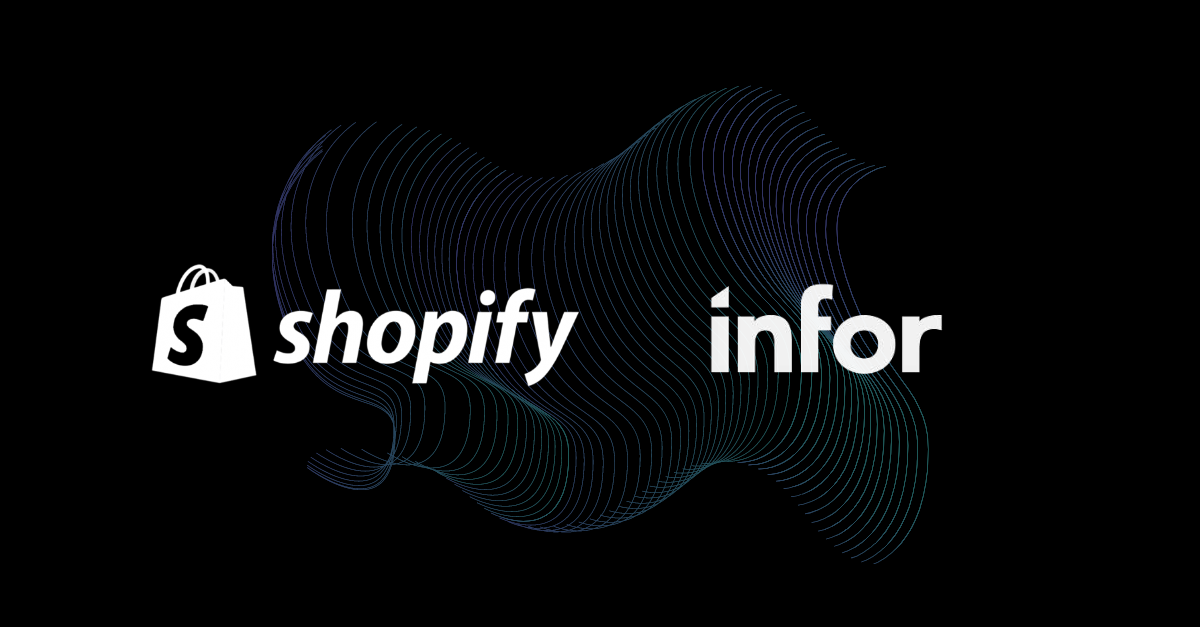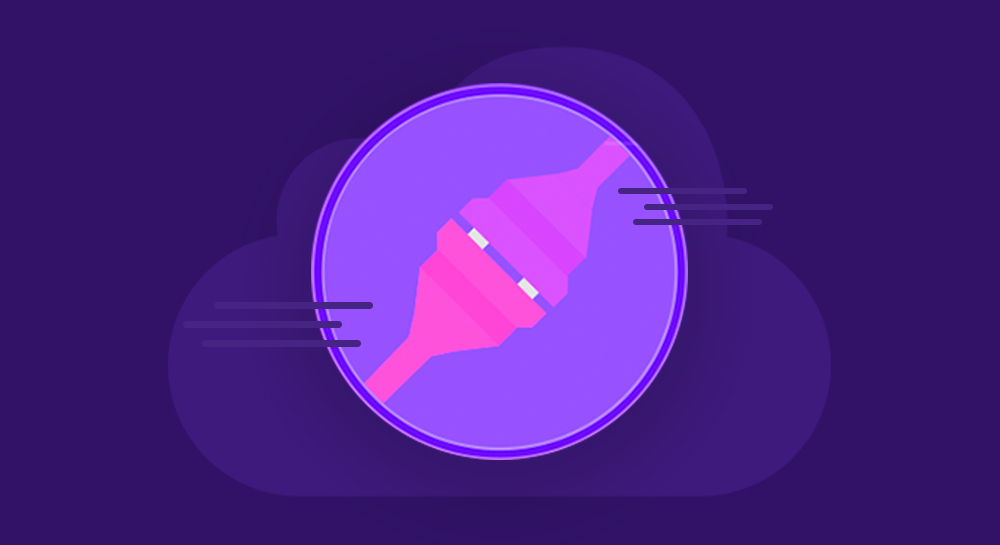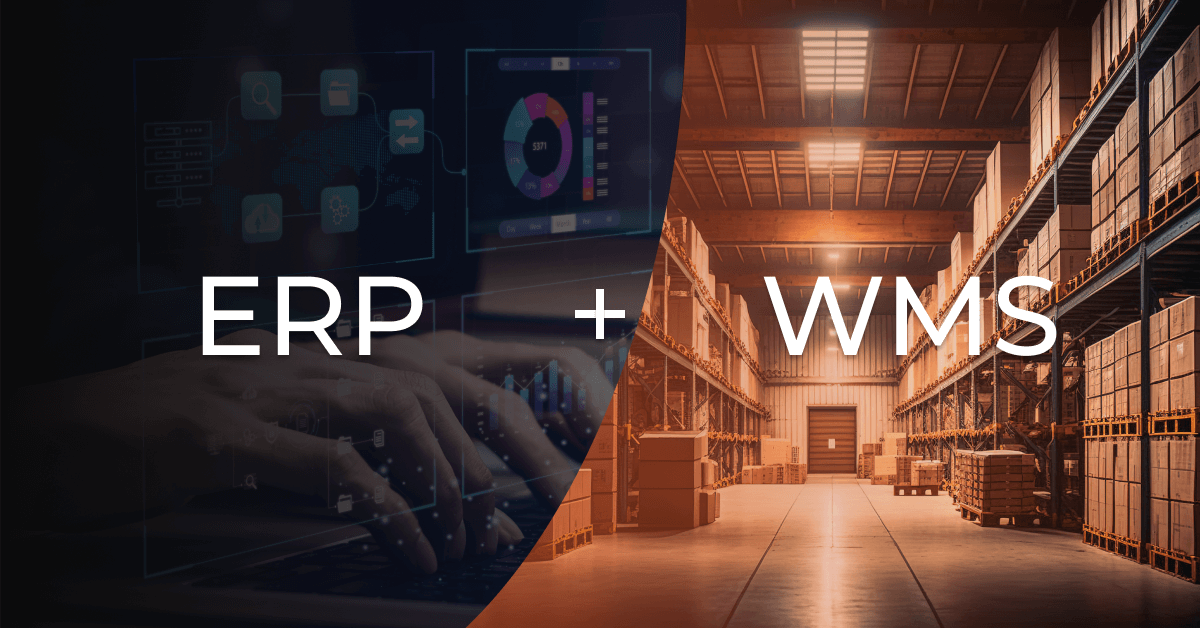Integrating two applications can be daunting because of implementation delays, data silos, and overwhelmed teams. It can easily turn into a big challenge for some businesses, impeding automation and efficiency.
Shopify Infor integration, an ERP integration connecting one of the most popular ERPs among distributors to a well-known platform.
Here’s what you need to know to ensure you make the right choice.
Shopify Infor Integration: How It Can Help Your Business
Ecommerce business owners need to keep an eye on industry trends, understand consumer behavior and buying patterns, and still continue to scale their business for newer opportunities. This is where integration can make your life easier!
Wondering how?
ERP (enterprise resource planning) software is a powerful tool for your business and an ecommerce store is an equally critical tool for your sales process. So, they need to work together for your success.
Shopify Infor integration means setting up your Infor ERP and Shopify store in a way that enables automatic two-way communication, without any intervention. By integrating these two systems, you get a robust connection, real-time, unified view of your data, and automation of even your most complicated workflows and processes.
This translates to better online experiences for your customers, complete process visibility, better pricing, and product management, reliable reporting and forecasting, and increased productivity.
Without Shopify infor integration Shopify Sap integration or Shopify epicor integration, ecommerce companies can lose customers because of error-prone data, delayed sales order fulfillment, or inventory stockouts. Not to forget undesirable outcomes such as reduced sales and negative reviews.
What Are the Basics of an Ecommerce ERP Integration
Any ecommerce logistics primarily includes order placement, fulfillment, payment processing, returns management, inventory management, and customer support.
On top of that, businesses must ensure security, follow tax compliance and track their finances. These processes get difficult as your business operations grow in size and complexity.
Working through systems that have just been assembled and do not communicate with each other, will only result in inefficiencies and errors. Your business will suffer from a lack of consistent data and complete control.
Here’s the good news—you can effectively integrate your ecommerce storefront like Shopify with modern ERP solutions such as Acumatica , ensuring complete business process automation and eliminating the possibility of data-related challenges in the future.
A smooth flow of information can provide better communication and insights immediately, and help create experiences that build greater customer loyalty.
Challenges in Integrating Infor ERP and Shopify App Store
Here are some common implementation challenges you can face while integrating:
- Volume and diversity of data: ERP systems house a company’s huge volumes and variety of data. Although this can be good for decision-making, more data fields mean complex integration. Therefore, for successful integration, you first need to identify what data from ERP needs to synchronize and integrate with your ecommerce platform.
- Legacy systems: Since ERP is an integral part of any organization, there are fewer changes to it when it comes to technology. In many businesses, even updated ERPs rely on older technologies. Legacy ERP settings/ environment can make integration a bit difficult.
- Extensive customization: ERP systems require some level of customization because every business is different. This level of customization can make ecommerce integration difficult unless you identify a master data source early on for a foolproof integration plan.
How to Integrate Shopify and Infor: Pros and Cons
Integrations can be unpredictable as no two systems are the same. You can either use ecommerce solutions’ API, utilize an ERP with native ecommerce integration, or use iPaaS (middleware platform) solutions with pre-built integration templates.
Here are some methods that companies resort to for ecommerce ERP integration.
1. Point-to-point connectors from third-party
P2P connector is primarily used for simple integrations where two platforms are involved.
Pros: Easy-to-use and cost-effective.
Cons: They are domain-specific and not flexible enough to manage multiple business processes. Moreover, with thousands of business applications and different kinds of ERP partners, it is almost impractical to create P2P connections for all possible connections.
2. Native integrations
A majority of software providers offer out-of-the-box native integrations that allow quick seamless connections with specific apps. For instance, many marketing automation tools can integrate with Salesforce directly.
Pros: Easy-to-use and offer common use cases. Some software providers may not charge additional subscription charges.
Cons: The use cases available are static and limited in scope and are related to the vendor’s offerings only. Additionally, they are not flexible enough to handle customization or handle edge cases.
Infor eCommerce Connector
Under Shopify’s Global ERP Program, Infor has been included as one of the ERP providers. Infor is offering its customers or merchants using Infor CloudSuite™ Distribution a certified integration to Shopify through an app, Infor eCommerce connector which was recently launched in 2022.
3. Build-it-yourself integrations
Developers can use coding and APIs to build their own direct integrations.
Pros: These integrations can provide better control and customization.
Cons: Such DIY integrations require extensive technical expertise and can be time-consuming. Scalability and maintenance can be an issue. Plus, technical updates or changes can be complex because such integrations are built from scratch.
Integration Platform as a Service (iPaaS): A Robust and Reliable Integration Solution for Distributors
iPaaS is a cloud-based, cost-effective, and flexible integration solution (middleware platform) that has been designed to connect different SaaS systems seamlessly. Moreover, its cloud technology ensures security and scalability even if more applications are added and synced in the future. Here is why iPaaS is a great alternative when it comes to data and application integration.
- Scalable architecture
- High level of customization
- Full-scale automation of business processes
- Low-code
- Can be used across multiple environments
- Helps create and manage APIs effectively
- Easy-to-use
- Drag-and-drop functionality
- Comprises pre-built templates for quick integration
- Better ROI
How Does DCKAP Integrator Simplify Shopify Infor Integration
DCKAP integrator is a cloud-based iPaas (middleware platform) that streamlines and simplifies Shopify Infor integration. The most preferred choice of distributors, DCKAP Integrator synchronizes real-time data flow between the applications and drives data-driven decision-making.
Here’s how your business can benefit by using DCKAP integrator for ecommece ERP integration.
Access to centralized data
Data is only meaningful when you can access it to extract useful insights. Siloed data just overwhelm your team and reduces efficiency. With DCKAP Integrator, you can bring all your data points together to create real insights. With access to real-time, synchronized data, you can also create powerful reports for better decision-making.
Complete process automation
Automation is critical for a business’s success. DCKAP Integrator automates your data transfer, eliminating the need for manual entry and avoiding errors. Be it order processing or sales orders or updating stock availability, automation helps improve workflows and make businesses more responsive towards customer needs.
Better customer experience
New-age buyers are opting for multi-channel experience and self-service. When you connect Shopify and Infor using DCKAP Integrator, you can create personalized customer experiences such as providing order updates, shipment information, etc. With an integrated CRM, these perks are taken a step ahead.
Cost savings
When data flow is automated using DCKAP Integrator, you can better manage your inventory, create accurate projections, and supply the right information to your customers, eliminating wasteful labor costs. You overcome gaps in the stock and improve overall efficiency, resulting in better cost-saving opportunities. Plus, your team gets to spend time in ensuring your clients have outstanding customer service instead.
Enhanced visibility
Even experienced businesses can experience stock unavailability. However, with DCKAP Integrator, you successfully integrate Shopify with Infor for reliable stock information, streamlining your supply chain management. Your staff can view accurate inventory records to manage sudden demands.
Best Practices for Shopify ERP Integration
Here are some best practices that you can follow for successful Shopify Infor Integration.
- Since ERP impacts the entire organization, it is important to get all stakeholders on board. Make sure to keep them informed about how integration will affect their work and decision-making process.
- Understand the short-term and long-term benefits of integration to have a successful plan in place. Ensure your integration plan is fulfilling your business needs and addressing the problems.
- Analyze your data for integrity and duplication, i.e. if possible do a manual data entry audit.
- Make sure your data security is maintained, especially when it comes to your customer record. You should also check third-party applications being used for strong security measures.
Final Words
Effective integration between your ERP software and online storefront can open new avenues for growth, saving money and making the most of your resources. With centralized data, business process automation, complete visibility, better customer experience, and cost savings, you can scale your business like never before.
Middleware software or iPaaS like DCKAP Integrator is a low-code integration platform for distributors that can help Infor users seamlessly connect to their Shopify site and come closer to achieving their business goals.
To know more about effective Shopify NetSuite Integration and how DCKAP can digitally transform your business, get in touch with us today!
DCKAP simplifies commerce for distributors through products designed to help boost revenue. DCKAP Integrator is an ERP integration platform for distributors, capable of seamlessly integrating various ERP, to ecommerce platforms, CRM, PIM, EDI, databases and more. It offers a powerful but easy way to sync tools from leading names includes Infor, Epicor Prophet 21 and Eclipse, SAP, BigCommerce, Shopify and Shopify Plus, Adobe Commerce, Microsoft Dynamics, and more.
Contents




